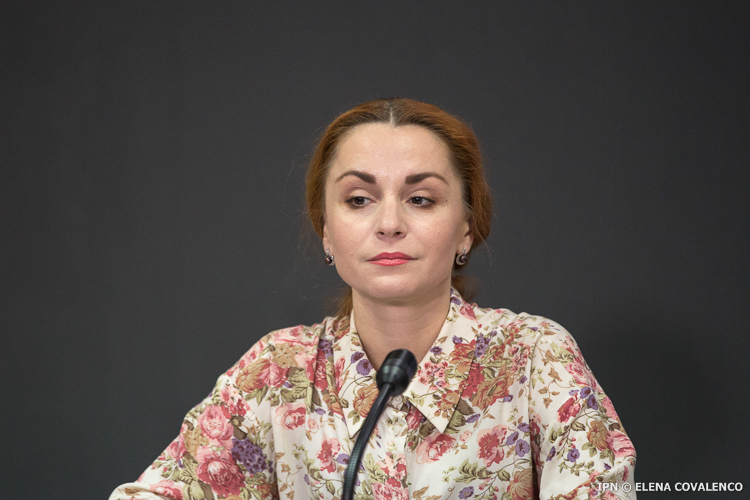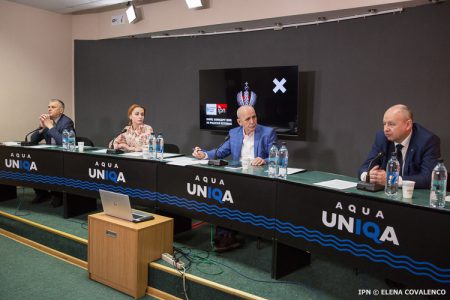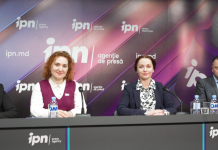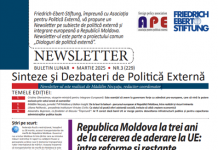At the end of last month, the Russian Federation made public its new foreign policy concept that brings about essential changes in the relations of this country with the surrounding world. The signals launched by Russia through this concept are extremely worrisome, including for the Republic of Moldova and not only. The experts invited to IPN’s public debate “New Russian foreign policy concept and its impact on the Republic of Moldova” discussed the effects of the new international positioning of Russia on the Republic of Moldova and on the geographical and geopolitical space in which the country is located.
According to the permanent expert of IPN’s project Igor Boțan, the foreign policy concept is a strategic planning document and a set of opinions about the national interests of states in the field of foreign policy, plus the basic principles, strategic objectives, main tasks and priority areas of the foreign policy. “Such documents that are a kind of framework documents are adopted based on the constitutions of states, the generally recognized norms and principles of international law, international treaties to which the states are a party, the laws of the given state and other legal acts adopted by the governments of the states,” noted the expert.
According to him, the foreign policy concepts specify particular provisions of the national security strategy and take into account the main provisions of other strategic planning documents referring to international relations. The concepts and strategies are two closely-tied complementary documents.
Igor Boțan said that in its relatively short history after the proclaiming of Independence, the Republic of Moldova adopted hundreds of concepts and strategies in different areas. The country adopted the first foreign policy documents in 1995 – the foreign policy conception and the state security conception. In 2006, special commissions were constituted in Parliament for designing new foreign policy and national security concepts. Those documents weren’t yet adopted or made public. The next national security strategy was adopted in July 2011, while a new foreign policy concept or strategy hasn’t been approved. On the President’s website, there is a succinct document that sets down the foreign policy goal – the European integration.
Director of the Institute of Legal, Political and Sociological Research of the Moldova State University Victor Juc, a corresponding member of the Academy of Sciences of Moldova, said a new Russian foreign policy concept was opportune and necessary from the viewpoint of this state because the international context changed. The anarchic character of the international environment expanded and the Russian Federation is now in an entirely different situation. The abolition of the 2011 decree on foreign policy and of the 2016 decree on the foreign policy concept was also opportune. “But this time, not as in 2016, the Russian Federation positions itself as a player with a millennial history, as a civilizational and cultural center of power. In fact, the “Slavic-phile” ideas of the 19th century with the Eurasian area occupied by the Russian Empire are being restored. But there are also particular concepts related to Huntington’s concept of culture and civilization. The Russian Federation says it is a civilization state and, therefore, in accordance with the concept, has the right to manage aspects of the cultural-civilizational system from a particular territory. These aspects are called the “Russian world”,” stated the academician.
According to him, Russia aims to become a world center of power and therefore makes effort to strengthen its state capacities and a network of allies and partners. “Not at all accidentally, the Russian Federation unilaterally assumes the idea of recognizing and promoting the interests of entities that haven’t been yet recognized at international level. And even two unrecognized republics in Caucasus are covered by this concept,” said Victor Juc.
Comparing the new concept and the previous concepts, the academician noted that by the concept of 2016 and primarily by that of 2011, Russia declared itself a player that takes part in collective integration systems as a player that promotes peace, stability and security. Now Russia declares itself a center of power. Particular ideas were revived about the anti-colonial movement and ending of the world system of colonialism given that importance is attached to the promotion of its interests in Africa and South America. “The Russian Federation considers it is the continuator of the Soviet Union. In 1991, the Russian Federation was tacitly recognized as the heir of the USSR by the other republics that formed the Commonwealth of Independent States. The Russian Federation positions itself on a new geopolitical coordinate. In the past, the main direction was Europe, but now a decisive role is given to the Eurasian and Euro-Pacific areas,” stated Victor Juc.
Executive director of the Foreign Policy Association (APE) Natalia Stercul said that Russia regularly reviews its foreign policy documents and not only the foreign policy concept, with the most recent concept being the sixth one. The foreign policy orientation can be deduced by analyzing all the related documents of Russia – from the enlargement of the Russian Federation for keeping its influence in the world up to what it is now – harsh rhetoric with regard to the U.S., the Anglo-Saxon states.
“I would like to mention that Russia also regularly reviews the national security strategy, not only the foreign policy concepts. The last document was renewed in 2021. We could see in 2022 many key positions that are stipulated in that document and, regrettably, continue seeing them in 2023, with regard to Ukraine, in particular, and also to the policy that Russia considers contrary, namely that of enlargement of NATO and the coming closer by this to its borders,” explained Natalia Stercul. According to her, the Maritime Doctrine of Russia was revised in 2022 and the Black Sea Region in this document is in the sphere of priority interests of the Russian Federation. In such conditions, the risks continue persisting as Russia aims to gain dominant control and it also aims to dominate in the Pacific Ocean.
The APE director made reference to the Maritime Doctrine of Russia that was adopted in 2014. Even if time passed, the defense policies seen today are defined in that document. “It was expected that this document will have a new form in 2022, but it seems that this will happen later. Even so, the positions about the enlargement of NATO to the East, the relations with Ukraine and the defense policies are clearly stipulated there and can be followed at present. This shows that the conceptual foreign policy positions stipulated in a document or another specify the key directions and dominant priorities for which a state is ready to fight at international level,” noted Natalia Stercul.
The relationship between Moldova and Russia has visibly worsened, and this can be seen in the unfriendly rhetoric of the Russian Foreign Ministry, said Natalia Stercul, executive director of the Foreign Policy Association According to the foreign policy expert, Moldova’s decision to gradually leave the Commonwealth of Independent States must be pragmatic, based on a thorough analysis of the impact on the country’s economy.
Natalia Stercul says that in the field of foreign policy, Russia will not stop waging a war for supremacy with the West. However, the Kremlin’s actions may be influenced by the attitude of the Russian population, which would hardly tolerate a new wave of mobilization or a total international isolation.
“Everyone expected more from the Russian Federation, but that does not reduce the existing risks. First, because Russia has not yet used its full military potential in Ukraine. The subject of a new wave of mobilization in Russia influences the attitude of the population towards this war. As concerns public opinion, many intellectuals, educated people, left Russia, we are talking about people who represented a value for this country. The priorities of Russia’s foreign policy in relation to the West will continue through the lens of the struggle between the West and the East”, said Natalia Stercul.
According to the head of the APE, the Chisinau-Moscow relationship has visibly worsened since the start of the war in Ukraine. The Kremlin continues to use aggressive rhetoric in relation to Moldova, invoking the same false pretext used in Ukraine about the disrespect for the rights of Russian-speaking citizens.
“Russia’s attitude in relation to Moldova can be observed from the rhetoric of the representatives of the Russian Ministry of Foreign Affairs. It is no secret that this rhetoric is not a friendly one. Contacts with the Russian Federation have been reduced, no high-level meetings are held. We see an intensification of national security issues, a tightening of border controls, bans on crossing the state border for entire categories of citizens, including Russian journalists, diplomatic employees. The rhetoric on the part of Russia is intensifying, both in Ukraine and in the Republic of Moldova regarding the alleged limitation of the rights of Russian-speaking citizens. This fact does not correspond to reality, because the rights of Russian speakers, as well as the rights of speakers of other languages, are respected. The war in Ukraine also started under this pretext”, said Natalia Stercul.
Natalia Stercul added that new ways of settling the Transnistrian dispute should be identified, as the war in Ukraine reduced the chances of the 5+2 format to zero. According to the expert, Chisinau’s decision to denounce some agreements signed with the CIS should be a pragmatic one, based on the country’s economic interests.
“The 5+2 format is on hold. It is hard to believe that Russia and Ukraine, states at war, will sit at the same table. Regarding the membership of the Commonwealth of Independent States, it is clear that the development vector of the Republic of Moldova is directed towards the European Union. The authorities clearly say that all efforts are focused on European integration, and a series of agreements with the CIS are to be denounced or revised, they are documents that no longer correspond to the reality and interests of the Republic of Moldova. I think there should be a pragmatic, balanced approach to the gradual exit from the CIS. It is necessary to analyze which agreements are important and which have lost their topicality”, Natalia Stercul said.

Citește mai mult: https://www.ipn.md/en/new-russian-foreign-policy-concept-and-its-impact-on-moldova-ipn-debate-8004_1096341.html







